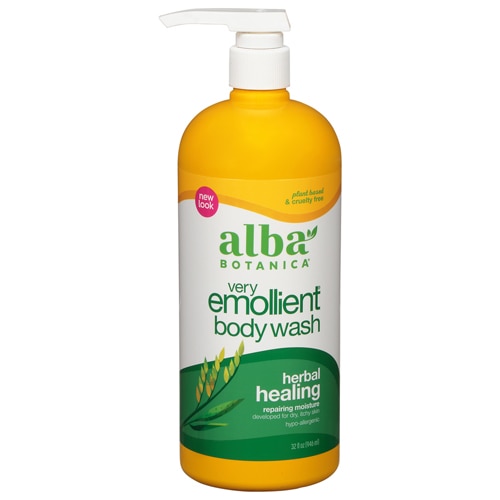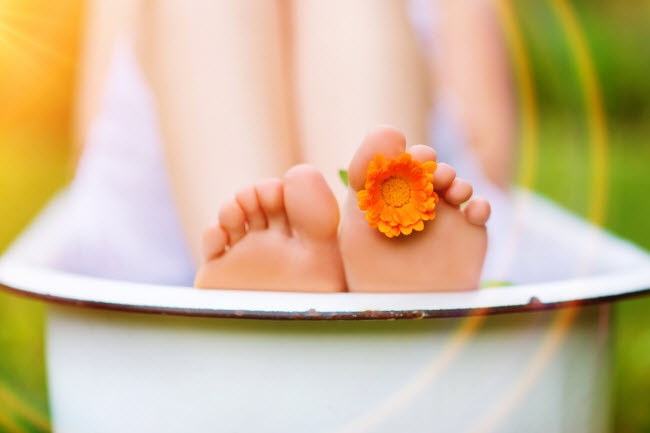You’re likely well-aware that herbal teas can supercharge your health by naturally encouraging everything from sounder sleep to enhanced digestion. But did you know that herbal tea baths can be nearly as beneficial for your health?
One of the hottest trends to hit the self-care scene, herbal tea baths are flaring up across social media, with everyone from Mariah Carey to Madonna touting their pluses. The blockbuster singers are onto something: When the plant constituents of tea are absorbed through your skin, they can provide a cornucopia of benefits, including rejuvenated energy and greater feelings of ease.
They’re also a cinch to create. You can either drop 1 ounce of dried herbs into a muslin bag and tie it over the faucet, or brew a mug of herbal tea in your kitchen (1 ounce of dried herbs plus 1 quart of boiling water, steeped for 20 minutes) and add it to a warm bath. (We recommend these two options, as dumping dried herbs directly into your tub will undoubtedly create a mess.)
Intrigued? Here are five herbal bath recipes for the ultimate home spa—and the benefits that you may see with them.
5 Benefits of Taking an Herbal Tea Bath
1. Ease anxiety with lavender and lemon verbena
Lavender has long had a sterling reputation for its soothing qualities—and new research validates this. Data out of Kagoshima University in Japan found that one of the herb’s compounds, linalool, has calming effects that could be used as a safe alternative to anti-anxiety medications. Additional research published by the National Institutes of Health reveals that lavender improves sleep quality and the symptoms of stress (such as restlessness and “somatic complaints”). Lemon verbena, meanwhile, adds a pop of brightness so that you can leave the tub invigorated.
2. Soothe menstrual cramps with chamomile and meadowsweet
Chamomile tea is a household staple for dozens of reasons. Heralded since antiquity as a natural cure for a variety of ailments, the herb is often linked with increased calm, wound healing, and relief from seasonal allergies. A study published in the Journal of Agriculture and Food Chemistry also demonstrates that chamomile contains compounds that can help combat a cold—and, for us ladies, relieve menstrual cramps. “This is one of a growing number of studies that provide evidence that commonly used natural products really do contain chemicals that may be of beneficial value,” study author Elaine Holmes, PhD, said in a news release. The herb meadowsweet contains tannins that may decrease inflammation, WebMD reports, as well as salicylates, which are similar to one of the oldest of pain-relievers: aspirin.
3. Prep for a big day with green tea, eucalyptus, and jasmine
Green tea may be the brightest star in the sky of teas, and rising research gives additional credence to its fame. Studies show that one of the most important compounds in green tea—L-theanine—curbs a raising pulse, decreases anxiety, and supports healthy blood pressure (all essential components of operating with a clear, calm mind). Also, in a study in the Journal of Functional Foods, it was found that anxiety-prone subjects were more composed and focused during a test if they took 200 mg of L-theanine beforehand. Meanwhile, eucalyptus organically opens your lungs (read: you may breathe better) and jasmine stimulates the production of key neurotransmitters that cultivate a positive outlook. Consider it the perfect spa situation before a big exam, a meeting with your CEO, or your wedding day.
4. Score a better night’s sleep with hops and linden flowers
Sure, a pint of hops-rich beer might assuage your worries and make you sleepy—but it might also trigger anxiety and disrupt your slumber. A smarter option? Brewing a bath with hops—the herb—and linden flowers. Hops is a known sedative that naturally promotes sleep, while linden flowers are frequently used in herbal medicine to help combat anxiety and support relaxation—precisely the ingredients you need to have a long and solid night’s sleep.
5. Get softer skin with dandelion flowers and mint
Your skin often takes the brunt of your distress and can manifest in everything from eczema to dry patches. Enter the promise of dandelion flowers and mint. Dandelion flowers are rich in beta-carotene (the precursor to vitamin A), which naturally shields your skin against sunburn (although you still need to wear sun protection), and vitamin C, which helps collagen keep its shape and protects your skin from free radical damage. Mint, on the other hand, has the highest antioxidant capacities of any food, Medical News Today reports. When applied topically—or absorbed in a bath—it can have a calming, cooling impact, leaving your skin silkier and you refreshed. Who knew a standard ritual could leave you glowing with health?




